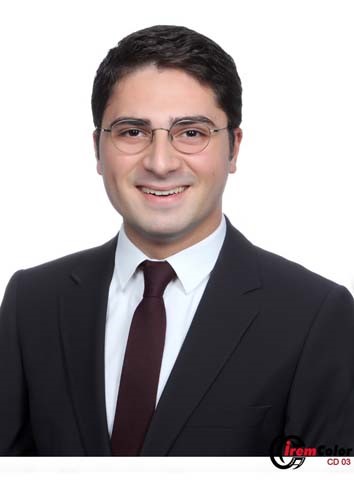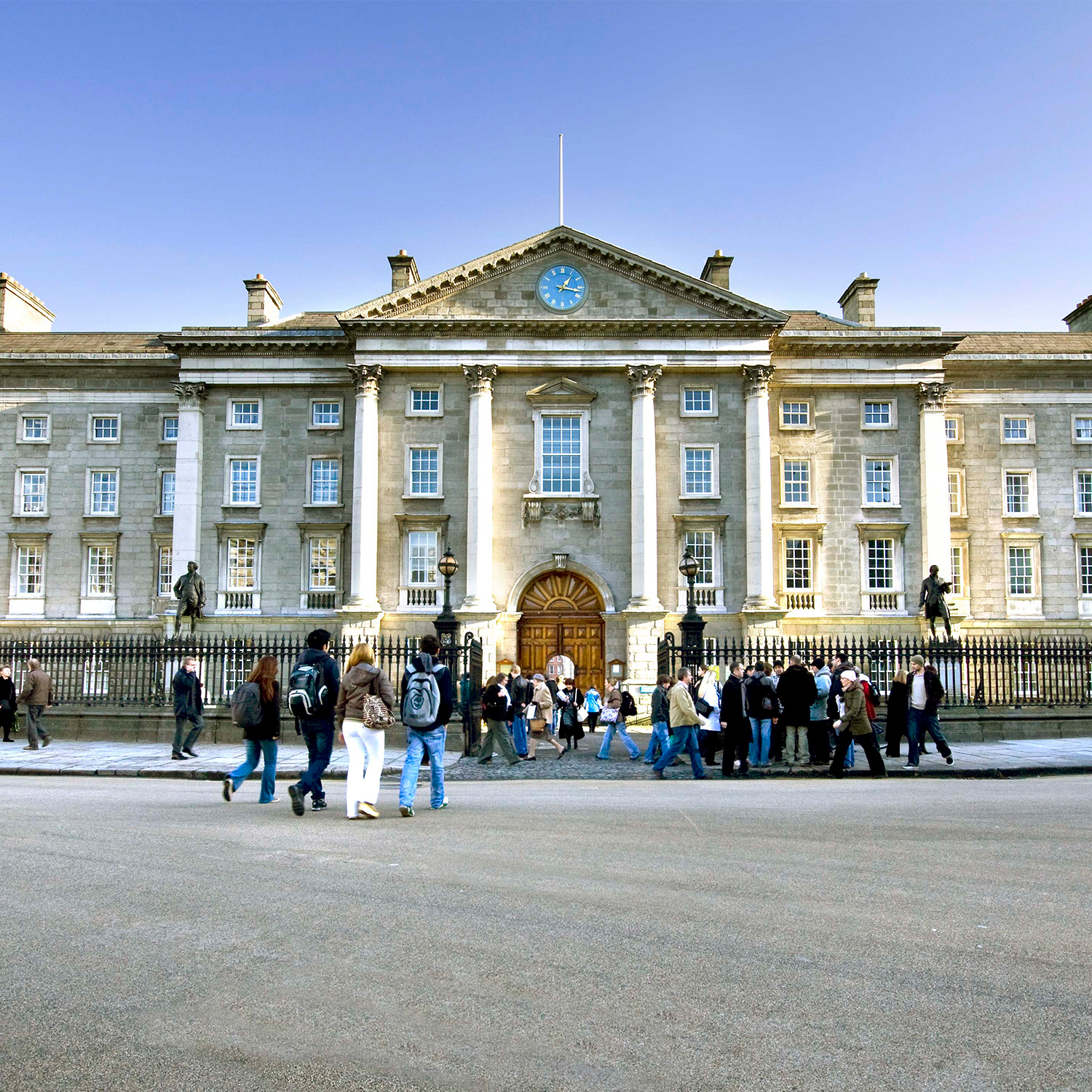Turkey
Turkey
Welcome to Trinity College Dublin, Ireland’s leading university. Prospective students from Turkey can discover more about Trinity including contacts and equivalent entry qualifications for undergraduate and postgraduate study below. You can also register your interest to find out more.
International Foundation Programme Entry Requirements
Our International Foundation Programme is aimed at students who have the drive and ambition to attend a world-class educational institute, but cannot begin an undergraduate degree directly. Our International Foundation Programme is a year-long programme designed to allow students to develop the skills required to succeed and excel in a competitive university environment.
For International Foundation Programme entry requirements, please visit the International Foundation Programme website.
Undergraduate Requirements
Trinity is delighted to accept students from Turkey who have completed one of the international qualifications recognised by Trinity which are detailed below.
Accepted qualifications for direct applications include:
- GCE A Levels GCE A Levels
- International Baccalaureate
- US High School Diploma with SAT or ACT
More information about accepted qualifications and entry requirements can be found in our Undergraduate Admission Guide for non-EU students.
If you do not have any of these qualifications, you may join Trinity through our International Foundation Programme.
In addition, to qualify for admission to a degree course at the University you must:
- Meet the minimum matriculation requirements (pass grades in English, Mathematics, a language other than English, and a full set of valid subjects for your examination system)
- Display a high level of competence in the English language in one of the examination systems recognised by Trinity College Dublin. Details on accepted English proficiencies are available here.
- Satisfy course specific requirements. Some courses will have additional requirements and restrictions for admission. They are detailed on the relevant course page.
- Meet competitive standards for admission to the course.
Please note that posted scores are minimum entrance requirements only and do not guarantee admission. Where places are competitive, a student must have excellent examination results to qualify for a place on their preferred course.
These standards are indicative only and final assessment will be made by Trinity's Academic Registry.
Important note on your application
Applicants from your country will normally be defined by Trinity as Non-EU applicants; this is based on residency rather than nationality.
Your EU/Non-EU status is an important part of your application and it is your responsibility to determine your correct status before making an application, as the method of application and requirements will differ.
Determining EU/Non-EU status (Undergraduate)
Making an Application
For detailed information on how to make an application to study at Trinity College Dublin, please see our How to Apply Guide.
There are many different ways to come to University and Trinity encourages applicants from all backgrounds and circumstances to apply. For more information on alternative paths to Trinity, such as advanced entry transfers, please see our guide to non-standard applications here.
Postgraduate Entry Requirements
Postgraduate work in Trinity is academically challenging and the University has high academic entry requirements.
Applicants will need to:
• hold at least a 2.1 honors degree from an Irish university or equivalent result from a university in another country.
Determining EU/Non-EU Status (Postgraduate) The fees you will be expected to pay to attend Trinity College Dublin are determined by a number of factors. For more information on how to determine your course fees, and methods of payment, please see our detailed information on Fees and Finances. Undergraduate Fees and Finances Postgraduate Fees and Finances For more information on scholarship, funding and grant opportunities, please see below. General Undergraduate Scholarships and Funding General Postgraduate Scholarships and Funding Scholarships for International Foundation Programme Study Do I need a Visa to come to Ireland to study at Trinity? The majority of non-EU/EEA students require a visa before entry to Ireland. To check to see whether you require a visa, please see here. Please see on the Irish Immigration Service website a list of the countries that require a visa before entry to Ireland. Trinity in your Country We are not travelling actively at the moment but we are always happy to help answer questions about our programmes, entry requirements and student life. You can find contact details for your regional representative in the "Contact us" section below. Any visits to your region are listed on this page. Education Agents Trinity works with education agents who can assist you with your application. Here is the list of our approved agents in your country: Atec Atlas British Education Bureau (BEB) British Side Bunguo CDS Edcon Edukas Eduworld Eğitim İrlanda IDP Plus Education and Career Seral Görmez
• display a high level of competence in the English language in one of the examination systems recognised by Trinity College Dublin. Details on accepted English proficiencies are available on our Admission Requirements page
Some courses may require higher standards or require you to take further tests or attend an interview. More detailed requirements for each course are listed on the relevant course page
If you have questions about the specifics of the admission requirements for a given course, or about the course itself, you should contract the course coordinator directly using the contact information available on the courses page.Fees, Funding, Scholarships
Trinity College Dublin offers a number of scholarship opportunities for prospective and current students interested in study or research at Ireland's leading university. Since its foundation in 1592, Trinity College Dublin has sought to assist students of limited means and reward academic achievement. Students are always encouraged to explore external funding options in their home countries.Visas
For general information on visas and immigration please visit our Visa Information section.Meet us in your country
www.atec.com.tr/
atlasedu.com/
www.britisheducation.com.tr/
britishside-edu.com/
bunguo.com
www.cds.com.tr/
edcon.com.tr/ /
edukas.com.tr
www.eduworld.com.tr/
www.egitimirlanda.com
www.idp.com/turkey/?lang=en/
plusedu.com.tr
www.seralgormez.com/
Contact us
Student Testimonial
-
 Deniz UnsalInternational and Comparative Law (LLM)
Deniz UnsalInternational and Comparative Law (LLM)
Jean Monnet ScholarWhy I chose Trinity?
Trinity College Dublin is the best choice for a student who would like to pursue an academic discipline in Ireland. I chose Trinity due to its unique historical legacy and I thought that a postgraduate programme should be studied in a university which has a rich background.I was also granted Jean Monnet Scholarship, which aims to contribute to the social capital of Turkey by funding selected Turkish nationals postgraduate studies in the field of the EU. Under this programme, students are free to choose their specializations so that it is advantageous for them to focus on their particular areas of interest. The only criterion to be selected as a Jean Monnet scholar is to be determined to focus on the EU and/or EU-Turkey relations. I am grateful that I have had this opportunity to develop myself at Trinity.
Why I chose Law at Trinity?
My LLM programme is International and Comparative Law. The most significant advantage of this programme is its flexibility. Each semester, students have to take only three modules and that’s why the structure of this programme offers a student-focused learning environment. During my studies at Trinity, I realized that Trinity also motivates me to write papers besides on entering written examinations. By this way, I had a prominent opportunity to focus on my areas of interest in a particular subject. It was a priceless contribution to my academic skills. I am also satisfied with the content of the modules that have been offered since they are totally compatible with the goals of the Jean Monnet Scholarship Programme. -
 Ali Tibet BaharInternational Foundation Programme
Ali Tibet BaharInternational Foundation ProgrammeI chose to study at Trinity because Trinity is the best university in Ireland and it is also one of the best universities in Europe. When I visited Ireland for a vacation a year ago, I also visited Trinity as a tourist, and I loved it from when I first saw it.
Since I arrived, I always felt the warmth of Irish people. They have never made me feel like an outsider and it was always very easy to make friends. The night life is very enjoyable, with lots of venues having live music. I would advise anyone to travel around Ireland. Although I have travelled to many places, I have seen breath-taking scenes in rural Ireland that I have never seen before.
Dublin has many universities which means the general age is very young which makes the whole city energetic.






